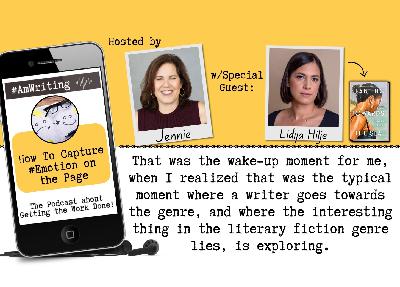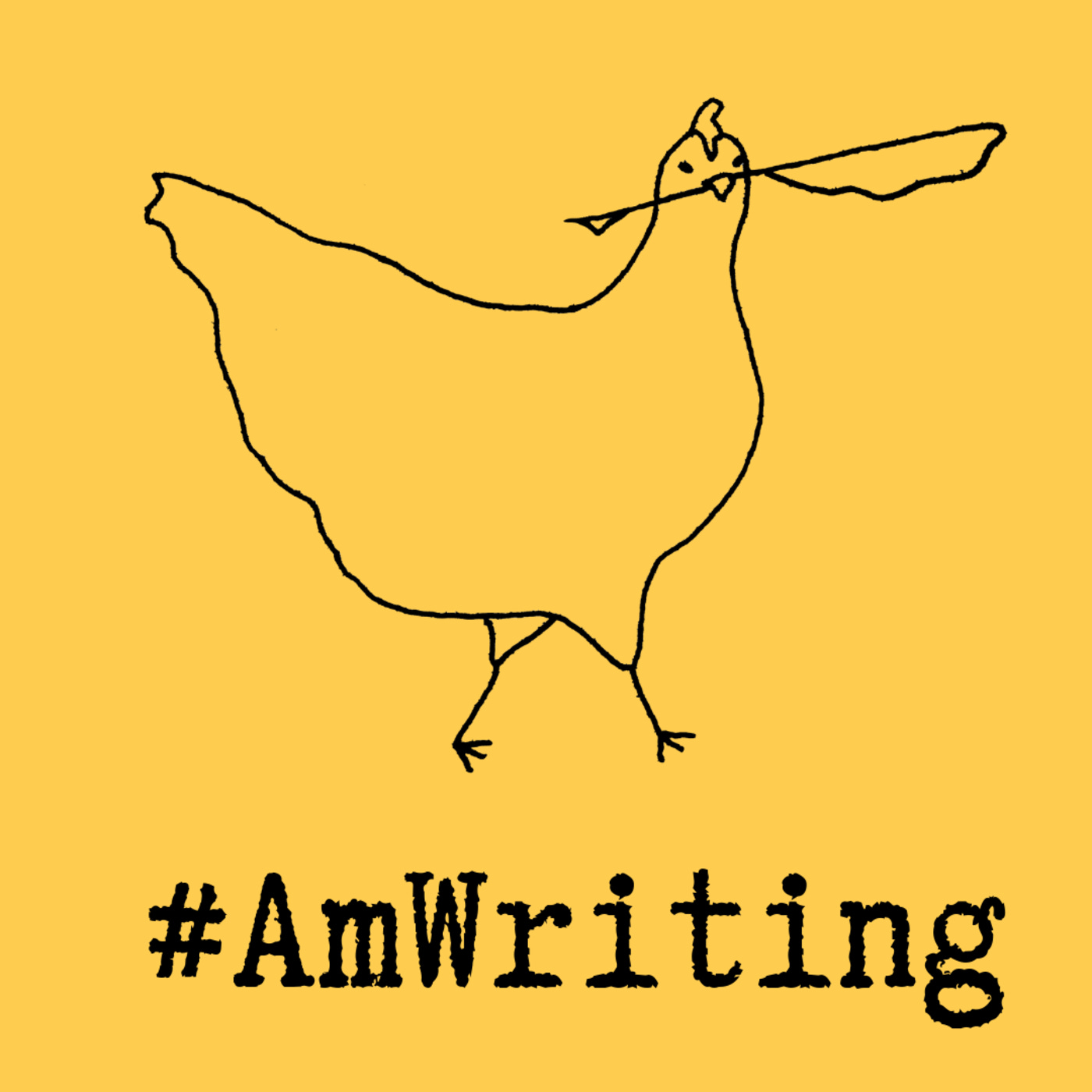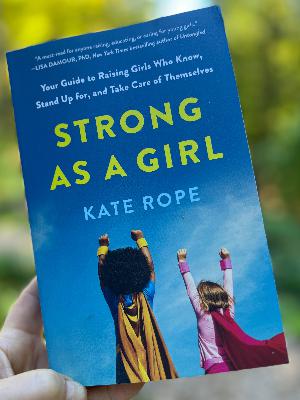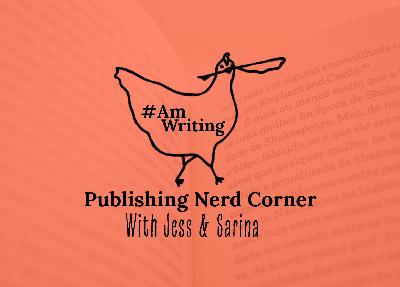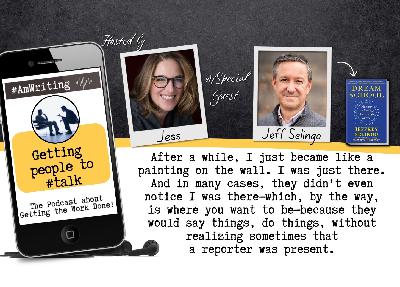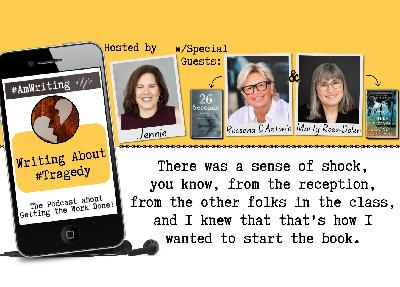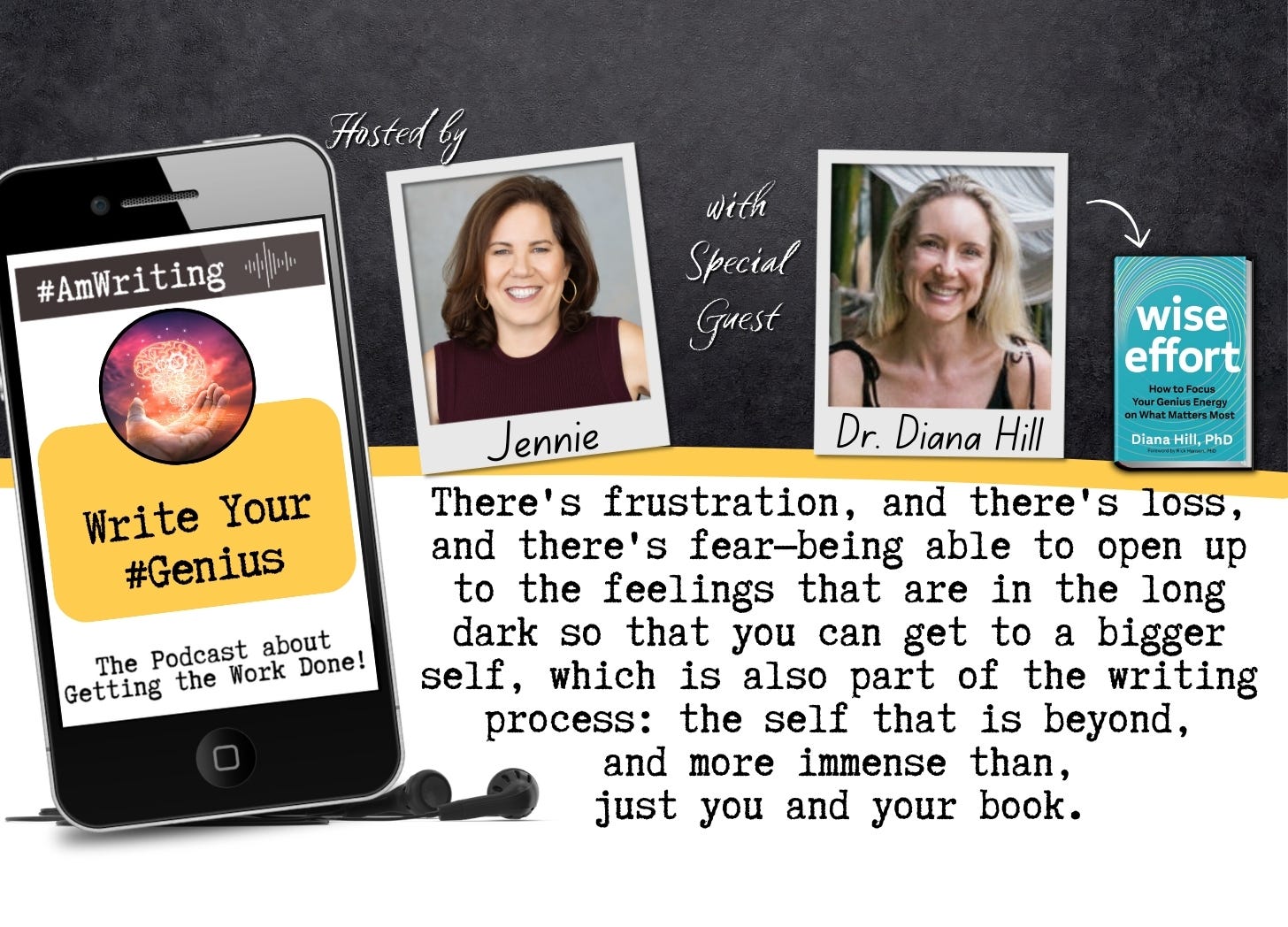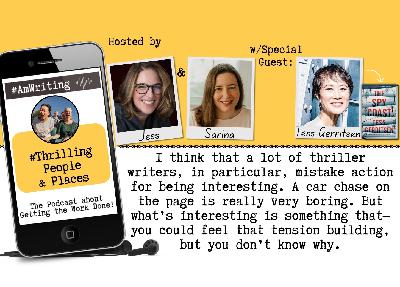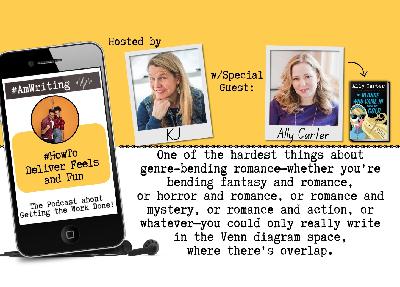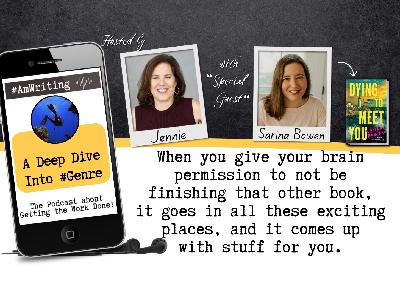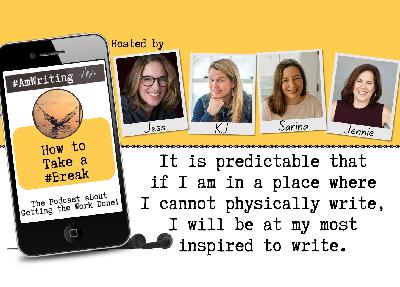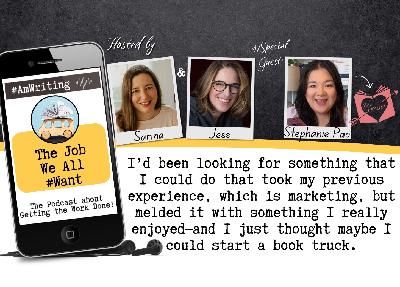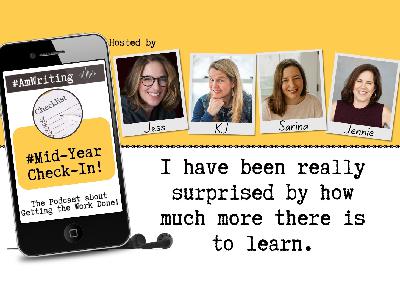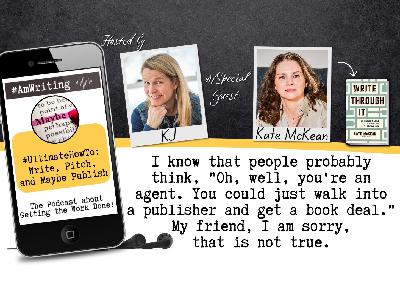How to Capture Emotion on the Page
Description
One of the writing skills I am asked about the most is, “How do I get emotion on the page?” People ask this no matter what genre they are writing, because no one wants to produce a manuscript that is flat and unengaging. Emotion is the key, but figuring out how to inspire your reader to feel something is a tricky thing to learn and an even trickier thing to master.
In her debut novel, Slanting Towards the Sea (Simon & Schuster, July 2025), Lidija Hilje has mastered it. The story feels so raw and so real—and English is not even Lidija’s first language! It’s a remarkable achievement.
I’m excited to speak with Lidija about her path to publication and how she figured out how to get the emotion of her characters onto the page.
Links from the Pod:
Guide on Literary Fiction from Lidija
Lidija’s website: www.lidijahilje.com
Author Accelerator book coaches Barbara Boyd and Nita Collins
Hey everyone, it's Jenny Nash. This episode happens to feature an Author Accelerator book coach. Author Accelerator is the company I founded more than 10 years ago to lead the emerging book coaching industry. If you've been curious about what it takes to become a successful book coach, which is to say, someone who makes money, meaning, and joy out of serving writers, I've just created a bunch of great content to help you learn more. You can access it all by going to bookcoaches.com/waitlist. We'll be enrolling a new cohort of students in our certification program in October, so now's a perfect time to learn more and start making plans for a whole new career.
Transcript below!
EPISODE 456 - TRANSCRIPT
Jennie Nash
Hey everyone, it's Jennie Nash. This episode happens to feature an Author Accelerator book coach. Author Accelerator is the company I founded more than 10 years ago to lead the emerging book coaching industry. If you've been curious about what it takes to become a successful book coach—which is to say, someone who makes money, meaning, and joy out of serving writers—I've just created a bunch of great content to help you learn more. You can access it all by going to bookcoaches.com/waitlist. That's bookcoaches.com/waitlist. We'll be enrolling a new cohort of students in our certification program in October, so now’s a perfect time to learn more and start making plans for a whole new career.
Multiple Speakers:
Is it recording? Now it's recording, yay. Go ahead. This is the part where I stare blankly at the microphone. I don't remember what I'm supposed to be doing. Alright, let's start over. Awkward pause. I'm going to rustle some papers. Okay, now one, two, three.
Jennie Nash
Hey writers, I'm Jennie Nash, and this is the Hashtag AmWriting podcast, the place where we talk about writing all the things; short things, long things, fiction, nonfiction, pitches, and proposals. Today I'm talking with Lidija Hilje, the author of the novel Slanting Towards the Sea. And what we're talking about is how to capture emotion on the page—the most elusive thing in the entire writing universe. Lidija lives in Croatia. She's a former lawyer who I know because she became a book coach through Author Accelerator. This is her first novel, and it's something else. As a longtime book coach, it’s really hard for me to read for pleasure anymore, because it's so hard not to see the writer at work and the seams of the creation. But Slanting Towards the Sea—I saw none of that. I fell wholly into the story and became lost in it; the olive trees and the sea, the pain of these people and this love triangle, and also just the love that they had for life and each other. It's almost unbearably raw—the way life itself can feel sometimes. And yet, since I know Lidija and her story to becoming a writer, I also know how much work it took to create this feeling and emotion. I'm so excited to speak with Lidija today, and so excited for people to hear about her and her story. So welcome, Lidija. Thanks for coming onto the podcast.
Lidija Hilje
Thank you so much for having me and for this incredible introduction. I'm so honored.
Jennie Nash
Well, before we get started, I want to read the jacket copy for Slanting Towards the Sea, so that our listeners can hear the bones of the story that you wrote. Is that okay if I read it for our listeners?
Lidija Hilje
Absolutely. Thank you so much.
Jennie Nash
Okay.
Ivona divorced the love of her life, Vlaho, a decade ago. They met as students at the turn of the millennium, when newly democratic Croatia was alive with hope and promise. But the challenges of living in a burgeoning country extinguished Ivona’s dreams one after another—and a devastating secret forced her to set him free. Now Vlaho is remarried and a proud father of two, while Ivona’s life has taken a downward turn. In her thirties, she has returned to her childhood home to care for her ailing father. Bewildered by life’s disappointments, she finds solace in reconnecting with Vlaho and is welcomed into his family by his spirited wife, Marina. But when a new man enters Ivona’s life, the carefully cultivated dynamic between the three is disrupted, forcing a reckoning for all involved. Set against the mesmerizing Croatian coastline, Slanting Towards the Sea is a cinematic, emotionally searing debut about the fragile nature of potential and the transcendence of love.
That’s it! What a—what a—what a summary, right? So I want to start by talking about the genre of this book, Lidija. As a book coach, you specialize in helping people write literary fiction. And you're extremely articulate about defining exactly what it is. And I'd like to just start there, by talking about how you see this novel, where it's positioned and, um, and your sense of it in, as a—in the genre, um, categories, if you will. Um, and I'll share with our listeners before you answer that English is not your first language—which is something we're going to talk about from a writing perspective, but just from a listening perspective, to give people some context for that. So let's talk about—let's talk about genre.
Lidija Hilje
Yeah, well, genre is one of my favorite topics as a book coach, and so naturally it is something I love talking about. So the first book I ever wrote, which is now safely shelved in a drawer at the bottom of a drawer, was women's fiction. And the reason why it was women's fiction was that because I was learning how to write, I was learning how to weave a story together. And in doing so, I was trying to find some commonalities in stories—like how stories work, how you develop them, how you develop a character arc, how you wrap it up towards the end. And—but my intention always was to write literary. I was just not very good at doing it. And so I kind of—like all the feedback that I got throughout my—from developmental editors—it was like geared towards kind of channeling the book towards women's fiction. And this is something that really still strikes me as a book coach: how different it is to coach literary fiction as opposed to genre fiction, which is more formulaic. So basically, that first book is safely shelved. And when I started writing this book, I was working really hard at trying to make it not be formulaic. And actually, one of the book coaches from our community helped me. I had a conversation with Barbara Boyd where I outlined my story for her, and she said there was this moment where I kind of did something in my outline…what could basically be called a cop-out—so that… I killed a character, basically, so that the…you know, that the book would close neatly, right? And so she called me out on it and said—because I talked to her specifically because she coaches literary fiction but didn't like or coach women's fiction—and I thought that perspective was something I needed. And so she said, "Why are you killing that character?” And that was the wake-up moment for me, because that was the moment when I realized that in doing so, that was the typical moment where a writer ki

